- Lionel Messi and Cristiano Ronaldo have dominated the Ballon d’Or over the years.
- Vinicius Jr and Jude Bellingham are the favourites for the 2024 crown.
- Ahead of the 2024 ceremony, Ronaldo Nazario is currently the youngest winner of the award.
Since its creation in 1956, the Ballon d’Or has become the pinnacle of individual honours in football. It has seen the names of many legendary players engraved in its metal. From Lionel Messi and his eight trophies to Stanley Matthews, the first ever winner of the trophy, everyone has earned the right to win it.
Yet rarely have the debates surrounding the future Ballon d’Or been as intense as they are at the moment. While La Pulga and Cristiano Ronaldo have dominated the competition head and shoulders over the last 15 years, no player now seems truly capable of succeeding them over the long term.
And as we enter 2024, there is still a deal of uncertainty as to who the future winner will be. Among the potential winners, Real Madrid duo Vinicius Jr and Jude Bellingham could, if crowned, join the prestigious list of the youngest winners in the history of the award.
| The Youngest Ballon d’Or Winners in Football History | |||
|---|---|---|---|
| Rank | Player | Age | Year |
| 1. | Ronaldo Nazario | 21 years, 3 months and 5 days | 1997 |
| 2. | Michael Owen | 22 years and 4 days | 2001 |
| 3. | Lionel Messi | 22 years, 5 months and 7 days | 2009 |
| 4. | George Best | 22 years, 7 months and 2 days | 1968 |
| 5. | Oleg Blokhin | 23 years, 1 month and 25 days | 1975 |
| 6. | Cristiano Ronaldo | 23 years, 9 months and 27 days | 2008 |
| 7. | Eusebio | 23 years, 11 months and 3 days | 1965 |
| 8. | Marco van Basten | 24 years, 1 month and 27 days | 1988 |
| 9. | Johan Cruyff | 24 years, 8 months and 3 days | 1971 |
9 Johan Cruyff: 1971
Age: 24 years, 8 months, 3 days
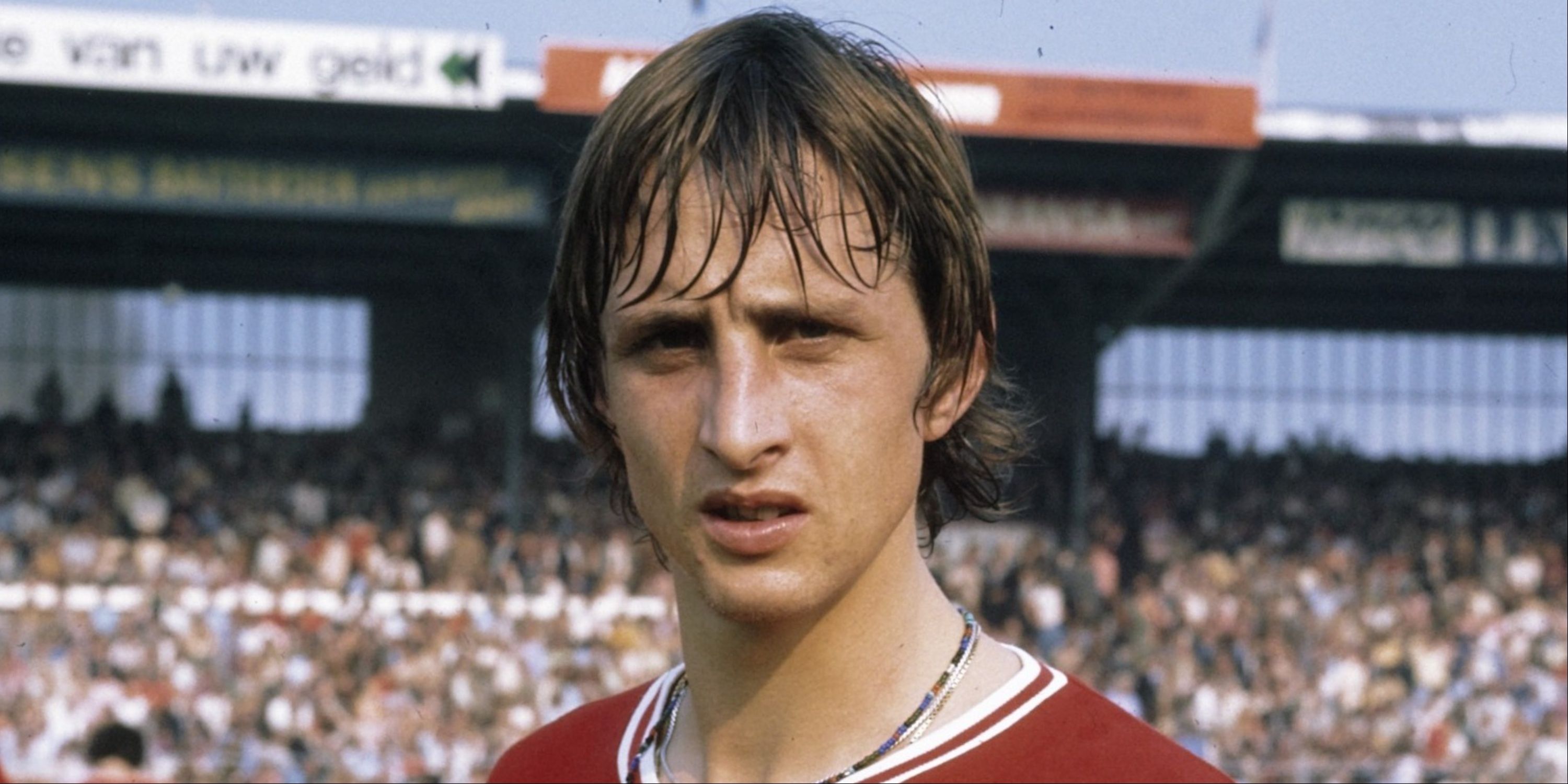
In itself, today’s portrait of Johan Cruyff’s legacy is enough to make you realise what a genius he was. The orchestrator of the ‘total football’ introduced by Rinus Michels’ Ajax in the early 1970s, the man nicknamed the “Flying Dutchman” is still considered one of the greatest players of all time.
A generational talent who won three Ballon d’Or awards (he was the first to achieve such a feat), including his first in 1971, at the age of 24 years, eight months and three days. The pinnacle of a season in which he made a major contribution to the first European title in Godenzonen‘s history.
| Johan Cruyff’s Club Statistics | |
|---|---|
| Appearances | 567 |
| Goals | 322 |
| Assists | 221 |
| Ballon d’Ors | 3 |
8 Marco van Basten: 1988
Age: 24 years, 1 month and 27 days
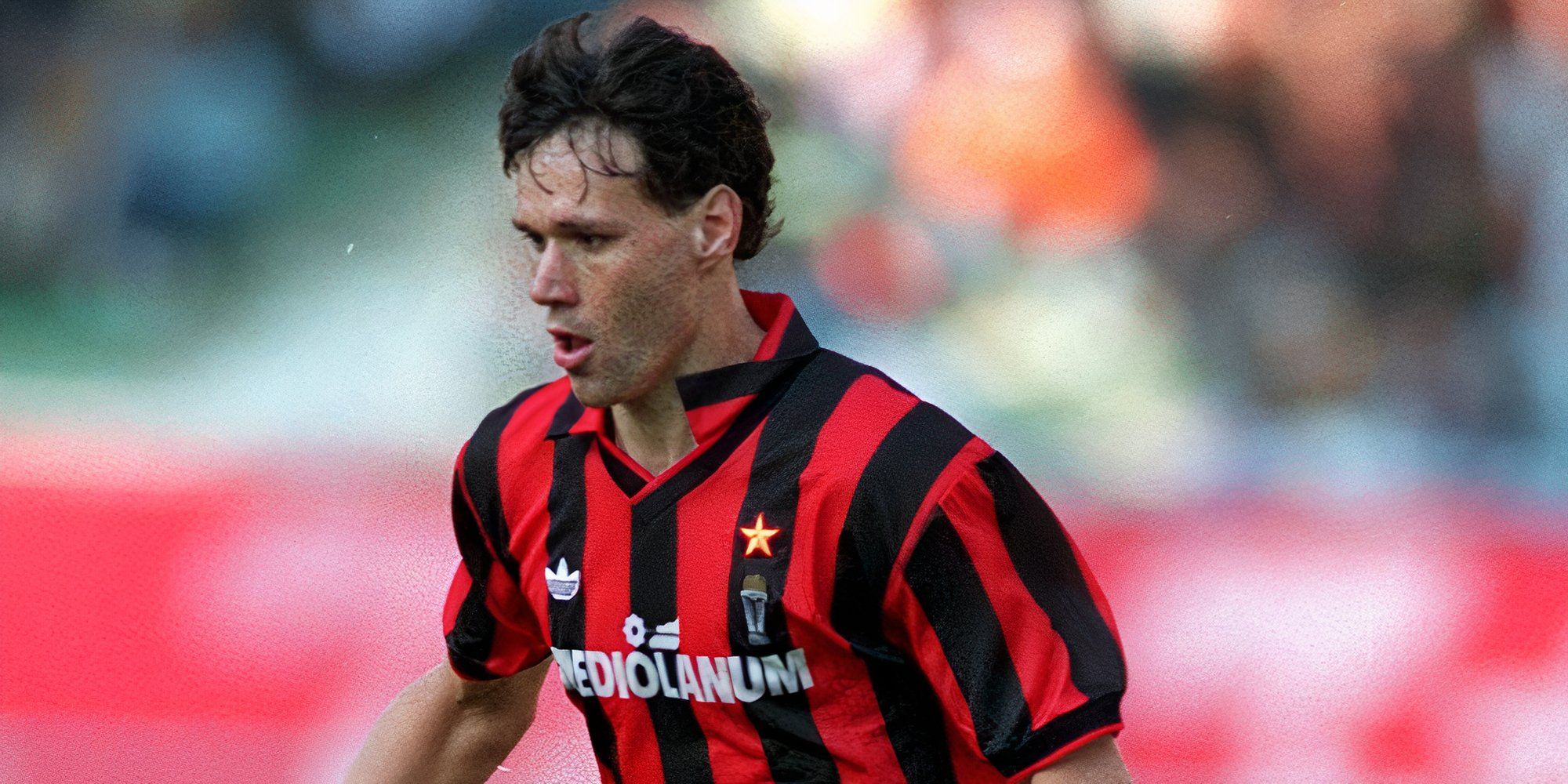
Marco van Basten would never have predicted at the start of 1988 that he would end the year as the best player in the world. After suffering a serious ankle injury in October 1987, the Dutch centre-forward was not back on the pitch until the following March. Even though he was selected to take part in the European Championship, it was on the bench that he began the competition. But his time came quickly.
Starting in the second match, he scored a hat-trick against England. In the semi-final, it was against Germany that he shone, scoring a goal and providing an assist. It was a masterpiece that was completed in the final, with a volley that is now the stuff of legend. After winning the European Championship, he returned to AC Milan, shone and was finally rewarded in December, winning the Ballon d’Or for the first time in his career. Two more would follow.
| Marco van Basten’s Club Statistics | |
|---|---|
| Appearances | 373 |
| Goals | 277 |
| Assists | 86 |
| Ballon d’Ors | 3 |
7 Eusebio: 1965
Age: 23 years, 11 months and 3 days
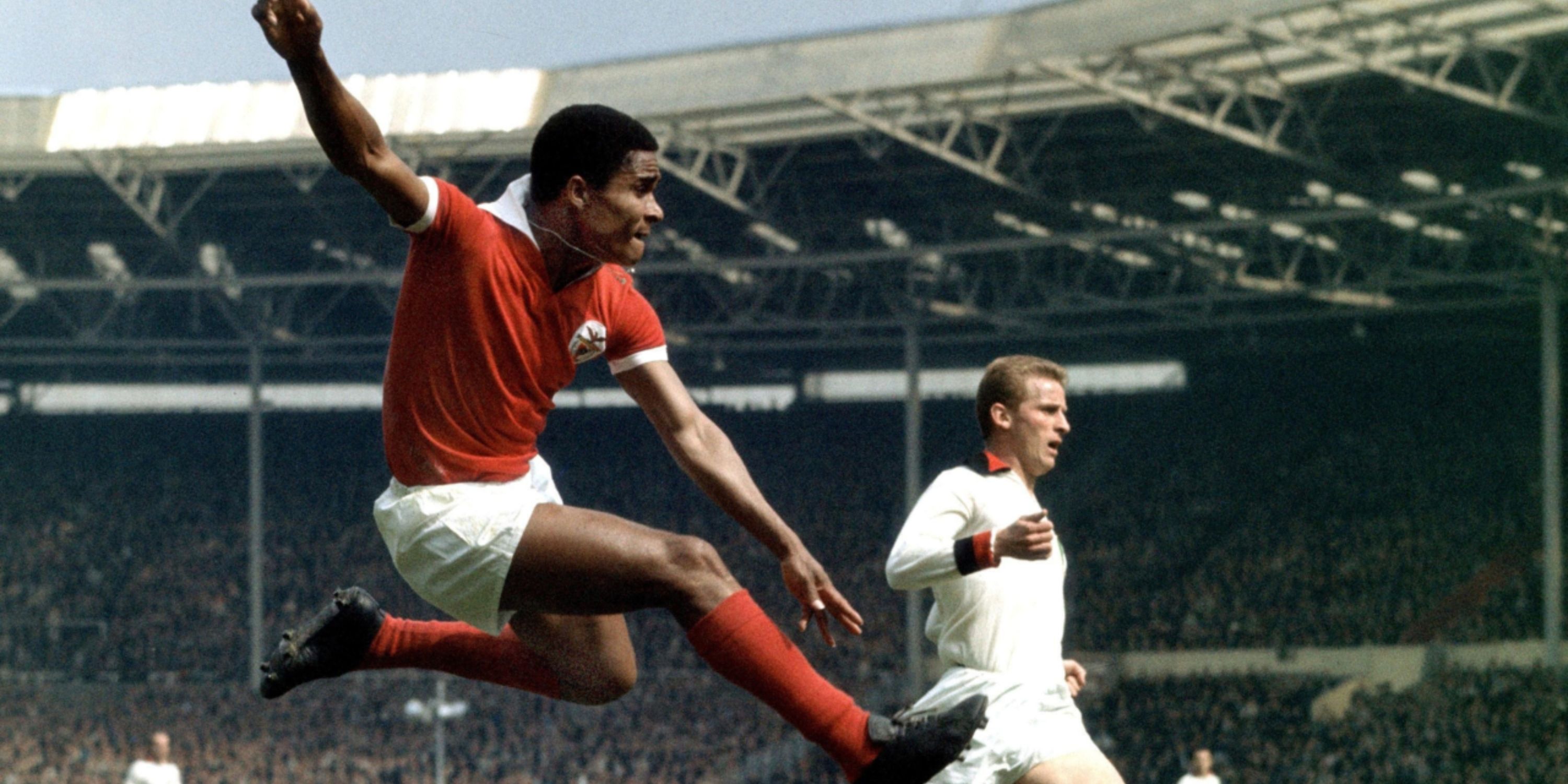
Preceded by Josef Masopust by just a few votes in 1962, Eusebio finally won the Ballon d’Or in 1965. The first Portuguese player to win the precious trophy, the native of Maputo, Mozambique, was coming off an exceptional season. While Benfica retained their Portuguese league title, the ‘Black Panther’ was top scorer (28 goals).
In the European Champion Clubs’ Cup, too, the striker was on fire. He scored nine goals in nine games to guide his side to the final, before finally falling to holders Inter Milan. At the age of 23 years, 11 months and three days, the first true star of Lusitanian football was on top of the world, and could now admire the horizon and the looming silhouette of another local legend.
6 Cristiano Ronaldo: 2008
Age: 23 years, 9 months and 27 days
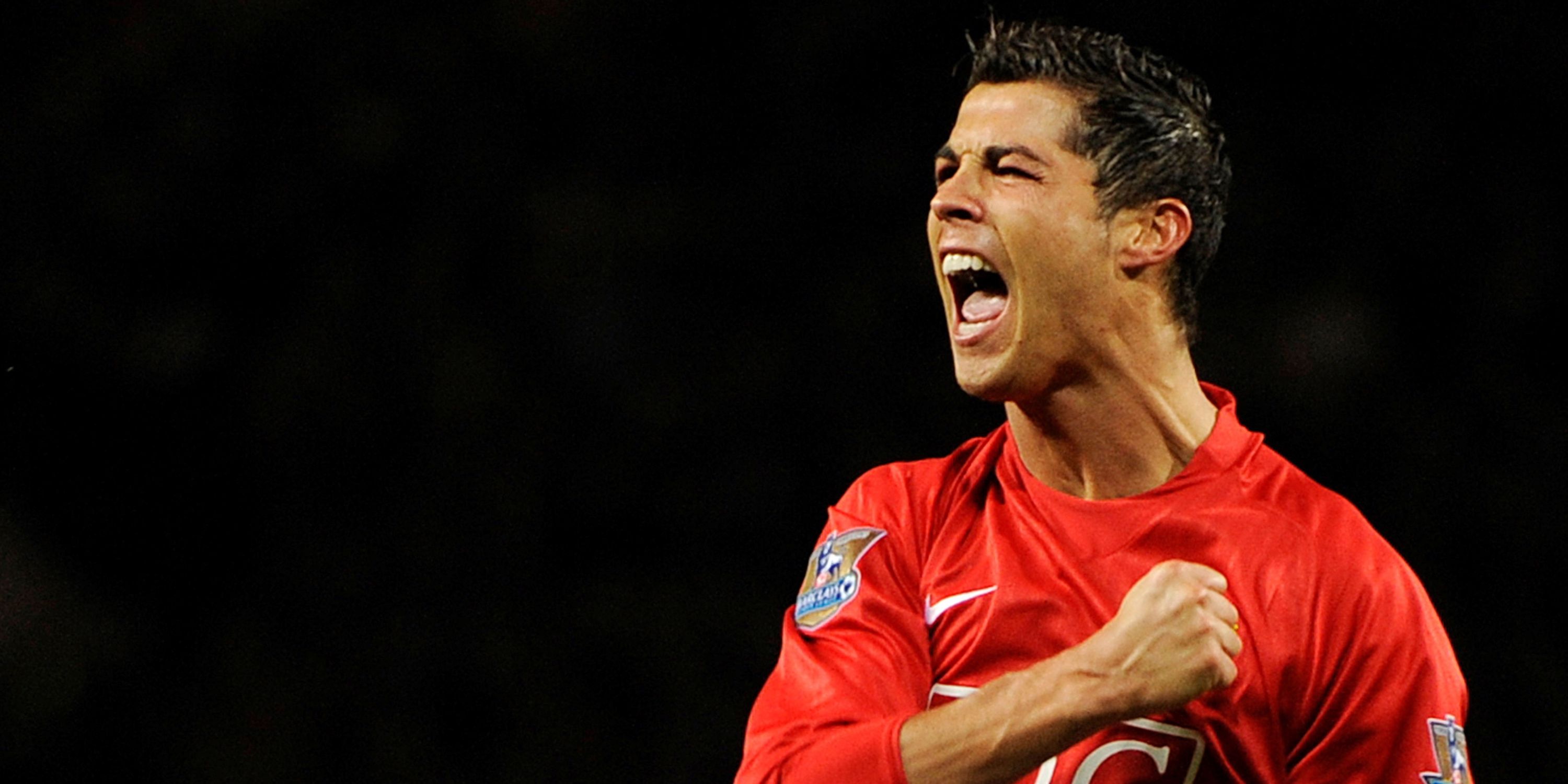
Like his predecessor, Cristiano Ronaldo is a player who has reached for the stars. Powerful, fast and an unparalleled goalscorer, the now five-time Ballon d’Or winner has all the traits of his predecessor. A ruthless player who gave his opponents nightmares. In 2008, the year of his first Ballon d’Or, CR7 swept all before him.
Scoring 42 goals in 48 appearances in all competitions, he won the European Golden Shoe as well as the Golden Boot 2007/08. Named best player in the Premier League, he led Manchester United to a league and cup double, and was also named best player in the Champions League. ‘I’m the first, second and third best player in the world’, as he himself declared before the ceremony, in a mixture of confidence and provocation, but also, ultimately, lucidity.
| Cristiano Ronaldo’s Club Statistics | |
|---|---|
| Appearances | 1016 |
| Goals | 762 |
| Assists | 239 |
| Ballon d’Ors | 5 |
5 Oleg Blokhin: 1975
Age: 23 years, 1 month and 25 days
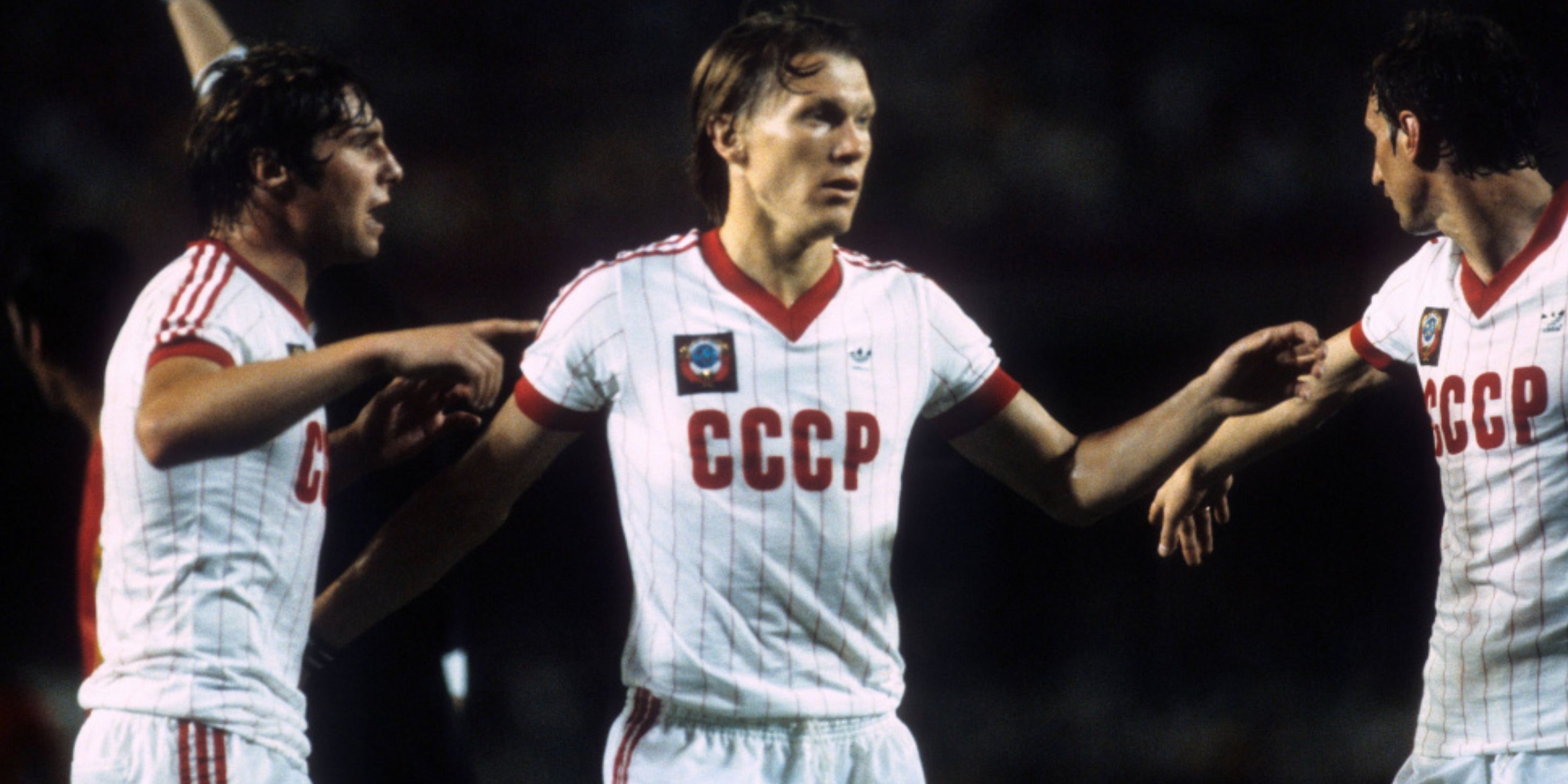
Oleg Blokhin was just 23 years, one month and 25 days old when he was crowned Ballon d’Or winner in 1965. Two years after Lev Yashin, the native of the Ukrainian Soviet Republic became the second Soviet winner in history, completing an exceptional season. The top scorer in the Soviet championship, he won the European Cup Winners’ Cup with his club Dynamo Kyiv.
Four months later, the Tsar single-handedly defeated Dettmar Cramer’s Bayern Munich to win the first European Supercup in his country’s history. Also crowned Soviet Player of the Year, he also won Europe’s highest individual honour, ahead of Franz Beckenbauer and Cruyff. Nothing less.
4 George Best: 1968
Age: 22 years, 7 months and 2 days
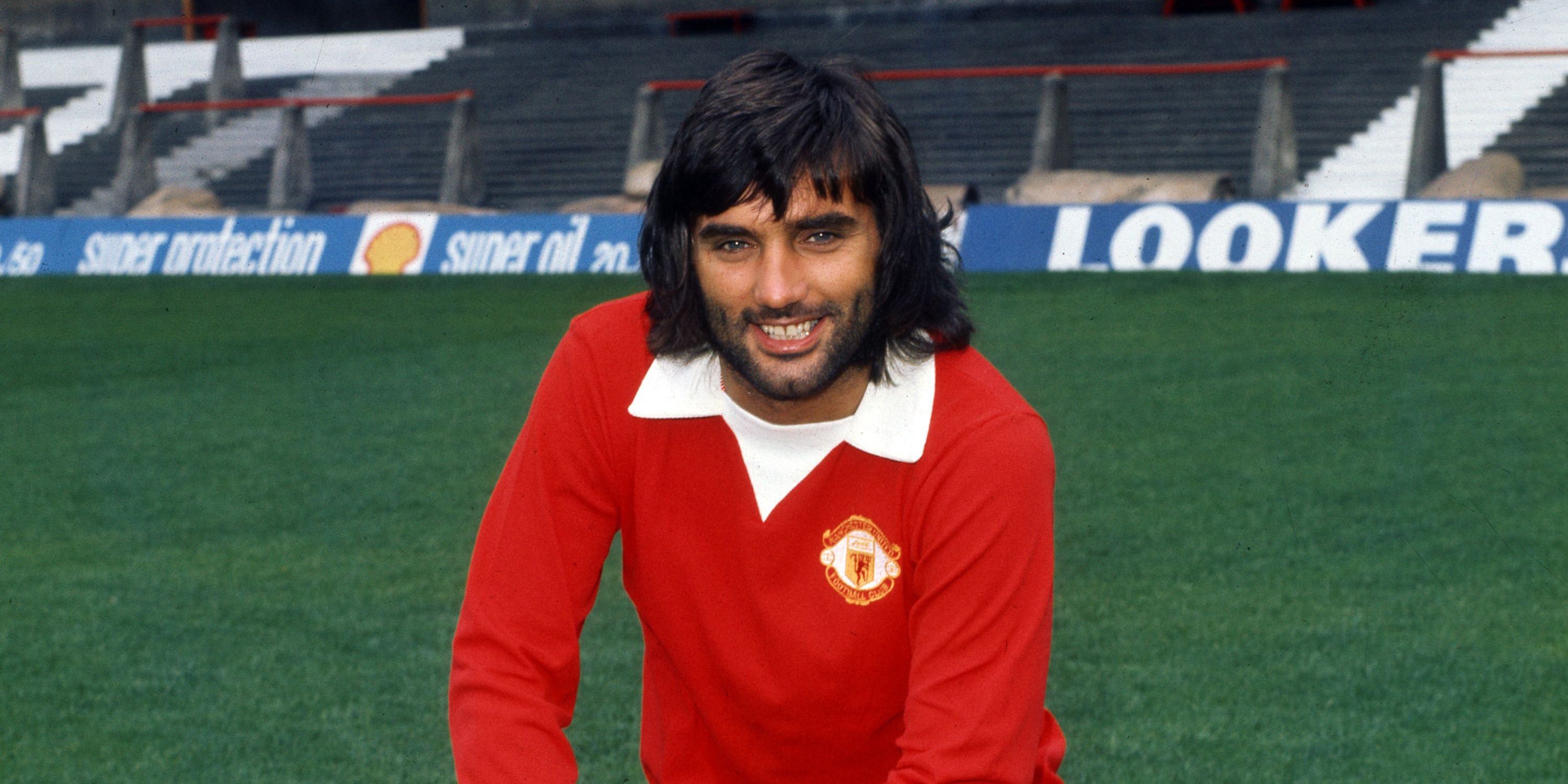
40 years before Ronaldo gave Manchester United their fourth Ballon d’Or, George Best succeeded Bobby Charlton, the second Manchester United winner. The first pop star in world football, the man who indulged in every kind of excess during his career was above all a footballing genius.
Virtuoso, actor, author, performer: many adjectives can describe what Best, the footballer, embodied. A true aesthete who became a legend and was named the Red Devils’ best player of the century by the International Federation of Football History & Statistics (IFFHS). The man who was nicknamed the ‘Fifth Beatle’ was a showman, passionate about the beautiful game.
| George Best’s Club Statistics | |
|---|---|
| Appearances | 471 |
| Goals | 171 |
| Ballon d’Ors | 1 |
3 Lionel Messi: 2009
Age: 22 years, 5 months and 7 days
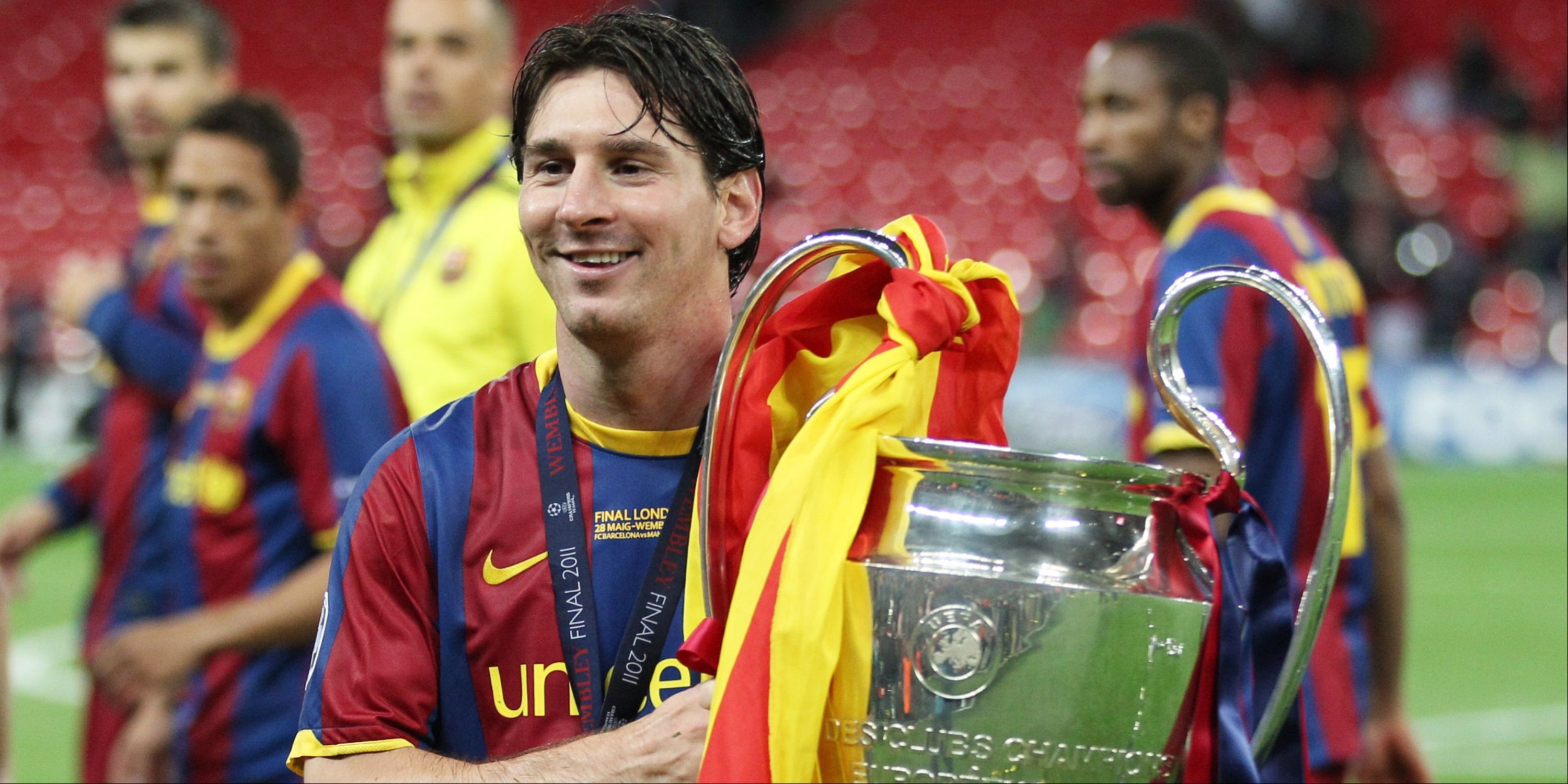
In 2009, Lionel Messi collected a remarkable 98.5% of the votes to win his first Ballon d’Or. It was a veritable plebiscite for the player who became the first Argentinian in history to win the legendary award. The reward for a season that will forever go down in history, during which Barcelona became the first club to win six titles (La Liga, Spanish Cup, Champions League, Spanish Supercup, European Supercup and Club World Cup) in the same season.
La Pulga, for his part, brought each of his opponents to their knees, one after the other. At the age of 22, the man who would one day become an eight-time Ballon d’Or winner was already the talk of the town. So much so, in fact, that some were already calling him the greatest player ever to set foot on the pitch. That’s saying a lot.
| Lionel Messi’s Club Statistics | |
|---|---|
| Appearances | 904 |
| Goals | 735 |
| Assists | 355 |
| Ballon d’Ors | 8 |
2 Michael Owen: 2001
Age: 22 years and four days
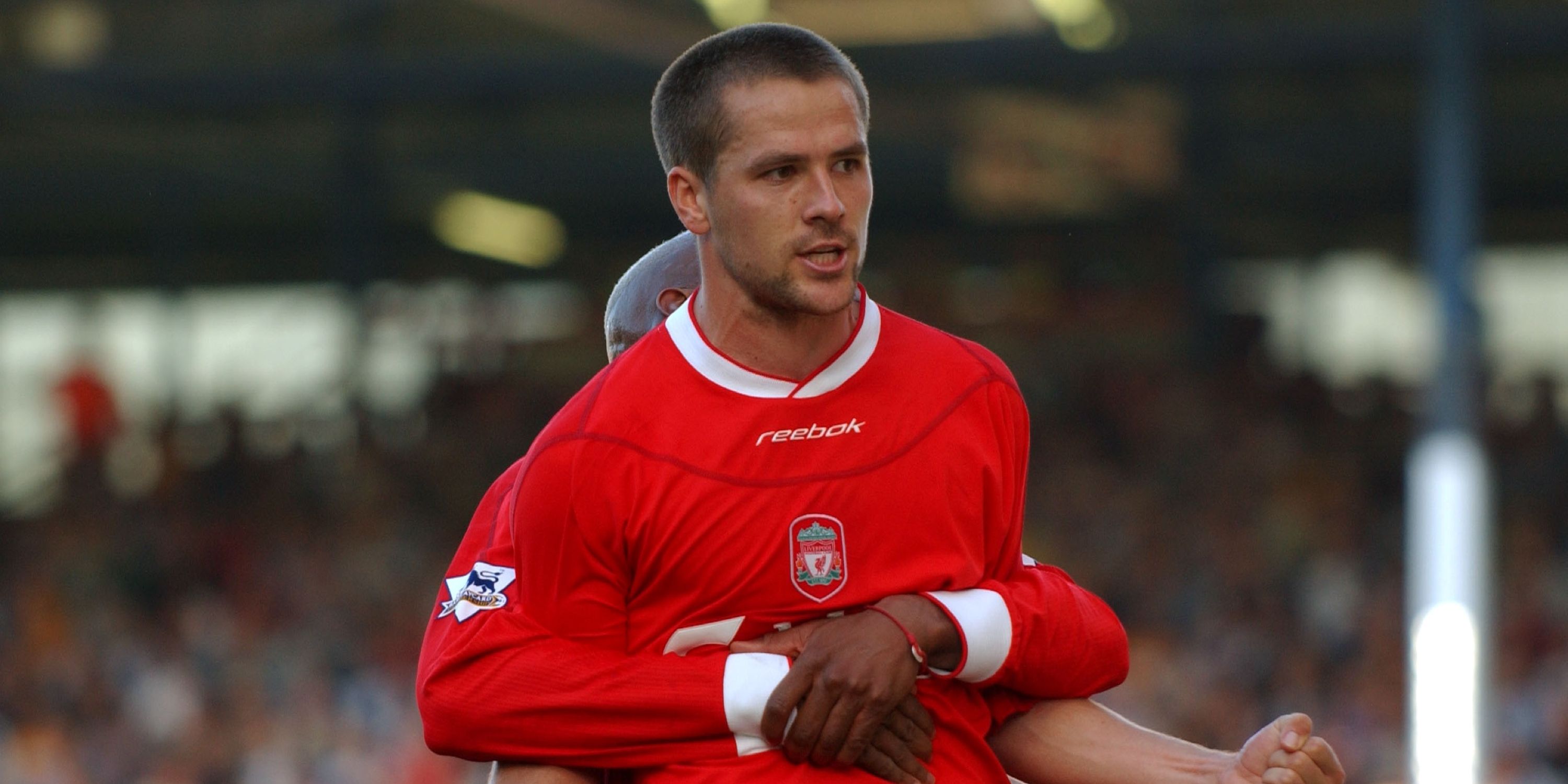
Under Gerard Houiller, Michael Owen, wearing his number 10, took part in Liverpool’s exceptional 2000/01 season. FA Cup, League Cup, Community Shield, Super Cup, UEFA Cup: the English striker was part of all the good times. In 46 games in all competitions, he scored 24 goals and provided seven assists, despite being left on the sidelines for 15 matches.
He also made a sparkling start to 2001/02. The ‘Wonder Boy’ scored 11 goals in 17 games, before being crowned Ballon d’Or winner, ahead of Raul Gonzalez and Oliver Kahn. It was already the high point of a career that was to take a tricky turn thereafter, with fitness problems and poor form.
| Michael Owen’s Club Statistics | |
|---|---|
| Appearances | 483 |
| Goals | 223 |
| Assists | 58 |
| Ballon d’Ors | 1 |
1 Ronaldo Nazario: 1997
Age: 21 years, 3 months and 5 days
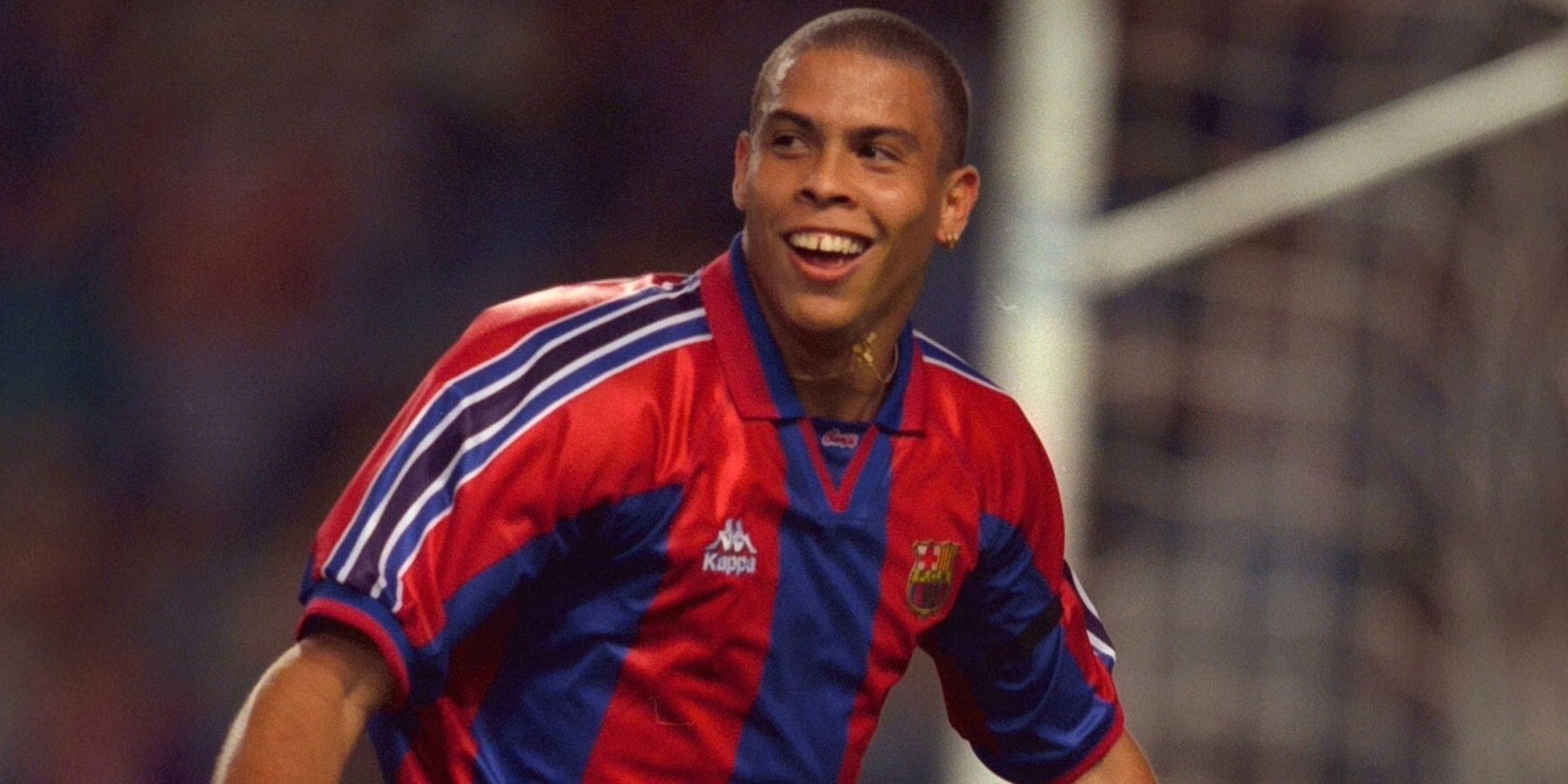
When, on the 23rd of December 1997, at the age of 21 years, three months and five days, Ronaldo Nazario became the youngest player in history to win the Ballon d’Or, many expected him to be only the first of many. ‘R9’ had just won the Copa America, the Copa del Rey, finished top scorer in La Liga with Barcelona and, in the summer, moved to Inter Milan, where he is discovering Serie A.
The Brazilian centre-forward went on to win a second Ballon d’Or in 2002 following his sensational performances at the World Cup in Japan and South Korea, scoring in the final against Germany. Injuries may have robbed the world of more sensational displays by O Fenomeno, but his record stands as the youngest Ballon d’Or winning in history. For now.
| Ronaldo Nazario’s Club Statistics | |
|---|---|
| Appearances | 482 |
| Goals | 309 |
| Assists | 75 |
| Ballon d’Ors | 2 |
Statistics courtesy of Transfermarkt. Correct as of 24th October 2024.
